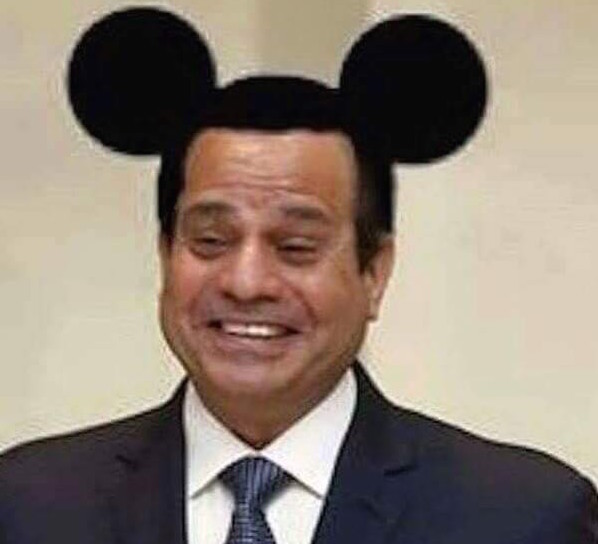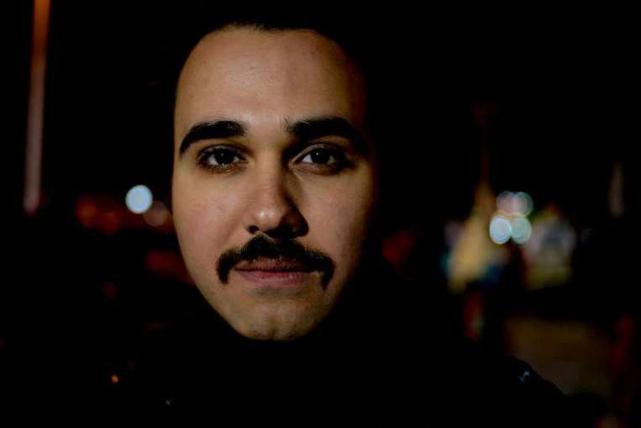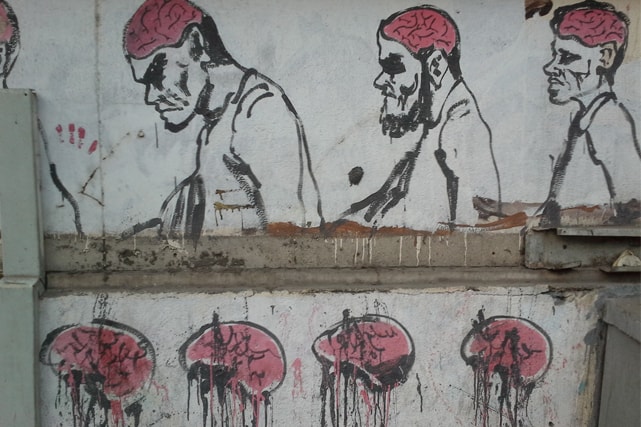Emad Mubarak is the founder of the Association of Freedom of Thought and Expression. He has over 10 years' experience in defending and promoting the right to free expression in Egypt. In this exclusive article for IFEX, Mubarak shares invaluable insight into the desperate state of affairs in Egypt today.
“I write this article not in hopes of change, nor to encourage you reader to take any action or adopt any attitude, because I am writing in the shadow of an all-enveloping cloud of despair. Action does not spring from the desire for change, but from the power of sarcasm and despair. This country is hurtling towards the bottom of a deep abyss.”
– From an article by Ahmed Naji for Al-Masry Al-Yawm on 22 September 2015
Fear and despair accompany us like shadows. We are losing our freedom to unreservedly search for ideas under a regime and in a society that loathe originality and are doing their utmost to encourage us to condemn and reject individuality and creativity.
As defenders of people’s freedoms and rights, our anger grows day after day. We are besieged with all sorts of misrepresentation, deception and defamation. Violations perpetrated by the State continually worsen in brutality as it adopts a security approach meant to assault independent thought, imagination and satire. Creativity and dissent have come to be treated as crimes representing a greater danger to the state and society than unlawful killing, torture and corruption.
In Egypt these days, my friends’ news feeds on social media sites are filled with images of people that have been imprisoned or killed; discussions of torture and forced disappearances; reports of death sentences and unlawful killings; and articles about court judgments against writers and journalists.
Everyone is in danger of being targeted by the government in its ‘fight against terror’, and its quest for ‘security and stability’. And when one looks towards the justice system for vindication, one finds instead a judiciary tirelessly working to protect officials from punishment.
I have dedicated ten years of my life to the civil society sector, and in those years I have learned that defending a person’s right to free expression should not be dictated in any way by the content of that person’s statements, opinions or choices whether political, ethnic or religious. I have learnt that any society that truly wishes to protect the right to freedom of expression must actively promote this freedom in order to combat governments’ inherent bias towards imposing censorship, control and secrecy on their citizens.
Defending freedom of expression is not necessary because it supports the collective pursuit of truth or the public good, but because freedom of expression is a right in and of itself. To preserve human dignity, it is essential that every person be able to say whatever they wish to say without restrictions or conditions. Whether that person’s statement is viewed as valuable or useless, as polite or crass, whether it is accepted or rejected, society should support their right to say it. After all, individuals’ right to freedom of expression is connected on a basic level to the realization of all human rights.
In Egypt, the state of freedom of expression appears hopeless. On the one hand, the regime is targeting Egypt’s youth with death, imprisonment and forced disappearance, closing all outlets for expression and targeting them on the basis of their opinions, their ideas and their imaginations. On the other hand, society itself is imposing restrictions under the guise of protecting morals, customs, traditions, religion, and national belonging.
As a result, many Egyptians have been punished for daring to break taboos imposed by society and the state. Allow me to introduce you to some of them.
Forbidden satire
In October 2015, during the final days of his military service, Amro Nouhan was sentenced by a military court to three years’ imprisonment because he had posted a satirical image on his Facebook page showing Egyptian president Abdel Fattah el-Sisi with Micky Mouse ears.
Sarcasm always spawns panic for those who consider that the stability and prestige of the state arise from the imposition of red lines regarding the head of state and the nation’s military and security services. From this perspective, sarcasm and satire seem like a direct attack against the nation, and there appears to be nothing strange about the idea of responding to them with judicial proceedings, condemnation and imprisonment.
In December, Nouhan’s conviction was upheld, blocking any chances of appeal. He serves his sentence in the infamous Borg El Arab Prison near Alexandria where scores of political prisoners are held.
A nation without torture
Update: After two years of pre-trial detention, Mahmoud Muhammad was released on bail on 22 March 2016.
In January 2014, Mahmoud Muhammad Hussein, then a 19-year-old student, took part in protests commemorating the third anniversary of the 25 January Revolution wearing a t-shirt imprinted with the slogan “a nation without torture” and a scarf emblazoned with the words “25 January Revolution”. On his return home, as he crossed Kameen El-Marg Street in Cairo, he was arrested.
Mahmoud’s dream of a nation without torture turned into a nightmare. After 700 days in pre-trial detention, his childish features began to fade within the walls of the prison and in a photo recently released of him he had the features of a young man. I looked at that picture then and thought: “Yes, fear has gradually seeped into us. Yes, we have been tricked as usual. We stand before a mass within which there is no humanity, merely repression and tyranny. Anger, despair and fear gnaw like weevils on our exhausted bodies.”
الصبي كبر وبَقى شاب. خلو بالكم من معنى نظرة العيون لما تكبر في الضلمة. سنتين حبس احتياطي في بلد القانون #الحرية pic.twitter.com/pr3Ozwbj7k
— liliane daoud ليليان (@liliandaoud) January 7, 2016
Translation of above tweet: The boy has become a young man. Pay attention to the those eyes that have grown in the dark. Two years of administrative detention in a country of the law.
Contempt for religion
In early March 2016, the village of el-Nasseriyya in Beni Mazar, in Upper Egypt’s Minya region, witnessed sectarian violence against the property of Copts and attempts to storm the village church after a Christian teacher and four secondary school age pupils were accused of contempt of Islam and inciting sectarian strife.
Their crime? Having produced a 30-second satirical video clip mocking the so-called Islamic State’s practice of slaughtering hostages and praying at the same time.
On 25 February 2016, the Beni Mazar juvenile misdemeanour court sentenced three of the Coptic Christian students to three years in prison and a fourth to imprisonment in a juvenile detention centre on account of his age. The teacher was sentenced to three years in a separate trial.
Offending public modesty and criminalizing fiction
In April 2015, journalist and novelist Ahmed Naji found himself being investigated by the public prosecutor following a complaint in which a citizen stated that he had “suffered from heart palpitations, severe exhaustion, a sharp drop in blood pressure and that his modesty had been offended” after reading a chapter of Naji’s novel “The Use of Life”.
The prosecutor found that “the accused published written material that incited lust. He employed his pen and his mind for malicious purposes that violated the sanctity of public decency and morals and provoked immorality”.
The decision to then refer Naji to trial reveals the public prosecutor’s view of art, creativity and imagination. The prosecutor based his decision on customs, traditions and religion in evaluating a creative work, and chose to “protect society” by further entrenching an inherent wrong rather than protecting the right of individuals to expression and creativity.
Despite the fact that Naji was declared innocent in his first trial, the public prosecutor brought the case to the court of appeal, which then sentenced him to two years in prison on charges of undermining public decency.
The text of the ruling against the novelist stated that “the writer Ahmed Naji sought to publish a chapter of a book containing expressions which awaken instincts and arouse captivation with the intent of plunging the sons of this society into environments fraught with moral degeneration with a view to afflicting them with moral vices and leading them to savour desires associated with moral vices.”
There is no hope for a judiciary that chooses to neutralize opponents and protect criminals from accountability. If called upon to do so, Egypt’s judiciary would defend the customary, traditional and moral taboos of society.
Unfortunately, the right to choice, which represents the essence of freedom, has been forsaken by our society, our judiciary and the regime.
We are engaged in a long and difficult struggle, one that requires a long-term approach in order to remain relevant. We have nothing but our creativity, sarcasm and imagination to liberate us from our desperate situation.
We will remain firm in our commitment to opposing the criminalisation of speech, to promoting a space where ideas and opinions can clash and compete for acceptance, and to building a society that respects an individual’s right to choose.
The right to choice, which represents the essence of freedom, has been forsaken by our society, our judiciary and the regime.

The image at the centre of the controversy

Writer and journalist Ahmed NajiFacebook
We are engaged in a long and difficult struggle. We have nothing but our creativity, sarcasm and imagination to liberate us from our desperate situation.
Emad Mubarak is the founder of the Association of Freedom of Thought and Expression in Egypt.
